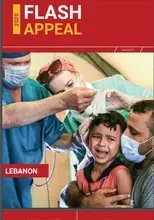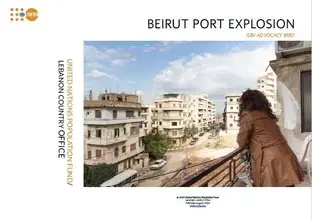Nearly two weeks after powerful blasts occurred on 4 August, at a warehouse at the Beirut Port containing large quantities of ammonium nitrate, widespread damage across several areas continues to cause human suffering and the extent of the crisis continues to become more clear. As of 26 August, OCHA reports that the death toll reached 180, with over 7,000 injured and more than 300,000 people displaced, with many showing symptoms of severe psychological distress. These numbers are expected to rise as more bodies are recovered from the surrounding wreckage, while dozens of people are still reported missing.
The World Health Organization (WHO) reports that more than 80 primary health care centres have been severely damaged. According to the UNFPA assessment of 55 primary healthcare facilities within 5 kilometers of the blast, less than 50 percent of the centers reported that they maintained the full package of sexual and reproductive health services, including maternal and newborn care, and treatment for sexually transmitted infections (STIs). Almost 71 per cent of health facilities are still functional but only 47 per cent of surveyed facilities can provide full routine health services. Moreover, 120 schools, attended by 55,000 children, sustained various levels of damage. Humanitarian partners are conducting further damage assessments, in close coordination with relevant government authorities.
Rising cases of COVID-19 are exacerbating the situation. On 25 August, 532 new COVID-19 cases were reported in Lebanon, adding to the cumulative 13,687 confirmed cases, with cases increasing daily by about 5 per cent since the blast. Describing the situation as “dangerous and sensitive,” the Minister of Public Health imposed a national two-week lockdown, with relief and aid post-explosions permitted to continue, with a curfew from 6.00 PM to 6.00 AM, in an effort to curtail the surge in cases.
The Beirut Port, which usually processes up to 90 per cent of Lebanon’s imports, is only partially operational. Between 11 and 18 August, 21 freighters and six international ships docked in the port and provided essential items including food. This reduced the aggravation of food insecurity, which was growing amid the COVID-19 pandemic and the prolonged socio-economic crisis.




